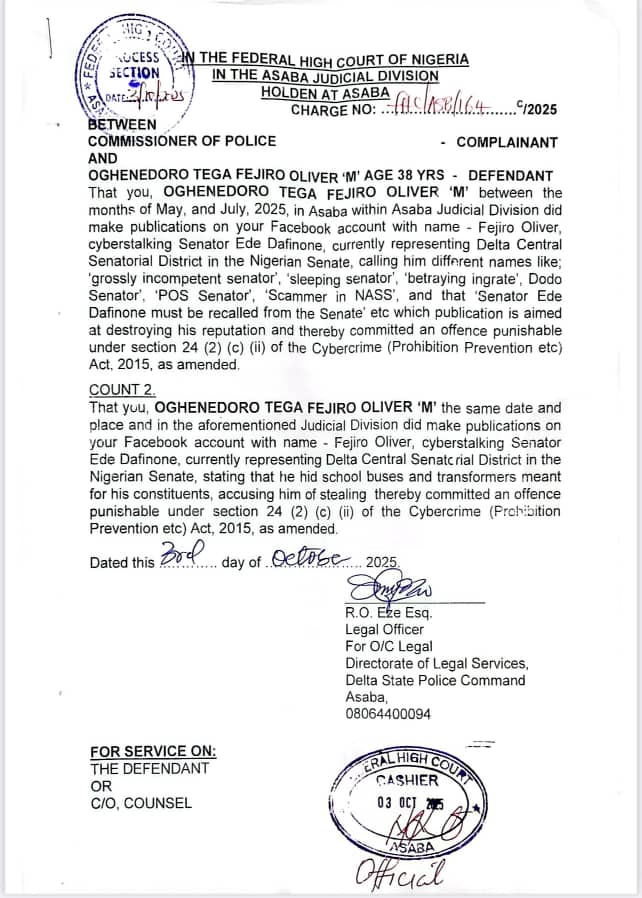The Federal High Court, Asaba Judicial Division, has arraigned investigative journalist Fejiro Oliver on multiple charges stemming from alleged cybercrime offences related to critical social media posts directed at Delta State Governor Rt. Hon. Sheriff Oborevwori and Senator Ede Dafinone representing Delta Central Senatorial District.
Oliver, the Editor-in-Chief of Secret Reporters and a well-known critic of political corruption, is accused of violating sections of the Cybercrime (Prohibition, Prevention, etc.) Act, following a series of Facebook posts where he allegedly described Governor Oborevwori as a “sleeping governor” and Senator Dafinone as a “grossly incompetent senator,” “POS senator,” and “betraying ingrate.”
The police also filed additional charges against Oliver for allegedly mobilizing public support for the recall of Senator Dafinone from the National Assembly.
Human rights lawyer Inibehe Effiong, who is representing Oliver, has condemned the charges as an attack on press freedom and free expression, arguing that the journalist merely exercised his constitutional right to criticize elected officials.
Effiong noted that Oliver was arrested on September 18, 2025, and detained for more than two weeks before the Federal High Court, Asaba, ordered the police to provide legal justification for his continued detention on October 2. The formal charges were subsequently filed on October 3, 2025.
The case has since sparked national debate over the use of cyberstalking laws to suppress journalists and dissenting voices in Nigeria. Activists and media advocacy groups have drawn parallels between Oliver’s arrest and previous instances where the Cybercrime Act was used to intimidate the press.
In a counter move, Fejiro Oliver filed a N1 billion lawsuit on October 6, 2025, against the law enforcement officials involved in his arrest and detention, citing violations of his fundamental human rights and calling for greater accountability in government.
Observers say the unfolding case will test the balance between digital expression, journalistic freedom, and Nigeria’s cybercrime enforcement framework in the democratic space.
Read also: DSCTDA Cracks Down on Environmental Offenders in Asaba, Convicts Eight as Mobile Court Sits




